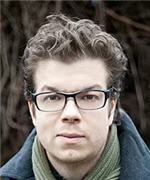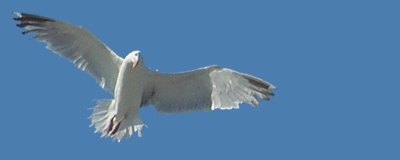
Ben Lerner
本-勒那
  Ben Lerner is the author of three books of poetry (The Lichtenberg Figures, Angle of Yaw, and Mean Free Path), three novels (Leaving the Atocha Station, 10:04, and The Topeka School), and a work of criticism, The Hatred of Poetry. He was a finalist for the Pulitzer Prize, the National Book Award, and the National Book Critics Circle Award. His critical writing on art and literature can be found in boundary 2, Harper's, Poetry, The London Review of Books, and The New Yorker. Lerner teaches at Brooklyn College. Ben Lerner is the author of three books of poetry (The Lichtenberg Figures, Angle of Yaw, and Mean Free Path), three novels (Leaving the Atocha Station, 10:04, and The Topeka School), and a work of criticism, The Hatred of Poetry. He was a finalist for the Pulitzer Prize, the National Book Award, and the National Book Critics Circle Award. His critical writing on art and literature can be found in boundary 2, Harper's, Poetry, The London Review of Books, and The New Yorker. Lerner teaches at Brooklyn College.
本-勒那著有三本诗集《利希滕贝格图样》《偏航角》《平均自由程》,三本小说《告别阿托查车站》《十点零四》《托皮卡学院》以及诗论《诗歌之恨》,作品入围普利策奖、美国国家图书奖、美国国家书评人协会奖,其文学与艺术批评文章见《疆界2》《哈泼斯》《诗刊》《伦敦书评》《纽约客》等杂志,目前任教于布鲁克林学院。
|

|

译者
Translator
冯冬
Peter Feng
  诗人、学者、译者。著有专论《默温诗之欲望与无限性》(路易斯安纳州立大学出版社,2021)、《深海之镜:保罗-策兰的陌异诗学》(南京大学出版社,2021),评论集《缪斯之眼》(秀威,2021),诗集《思辨患者》(秀威,2018)、《平行舌头》(秀威,2015)等,译有沃尔夫、普拉斯、勒韦迪、科尔扎诺夫斯基等人作品,当前关注于哲学、精神分析视野下的陌异诗学研究,现居青岛。 诗人、学者、译者。著有专论《默温诗之欲望与无限性》(路易斯安纳州立大学出版社,2021)、《深海之镜:保罗-策兰的陌异诗学》(南京大学出版社,2021),评论集《缪斯之眼》(秀威,2021),诗集《思辨患者》(秀威,2018)、《平行舌头》(秀威,2015)等,译有沃尔夫、普拉斯、勒韦迪、科尔扎诺夫斯基等人作品,当前关注于哲学、精神分析视野下的陌异诗学研究,现居青岛。
Peter Feng is a poet, scholar, and translator. He is the author of Desire and Infinity in W. S. Merwin's Poetry (LSU Press, 2021), Mirror in the Deep Sea: Paul Celan's Poetics of Strangeness (Nanjing UP, 2021) and a collection of critical essays The Eye of Muse (Showwe, 2021). He has also published two books of poems: Speculative Patient (Showwe, 2018) and Parallel Tongues (Showwe, 2015). His translations include Thomas Wolfe, Sylvia Plath, Pierre Reverdy, and Sigizmund Krzhizhanovsky. At present, he is exploring poetry's unique access to the essential strangeness of Being in a conversation with philosophy and psychoanalysis. He lives in Qingdao.
|
Demands indefinitely specified,
demands incompatible with collective living
beget stadia
with indefinite seating
delicately tiered.
Resembling its shape
and therefore suggesting its function:
a wave.
Or repeating its shape
and therefore undoing its function:
a wave,
which I will here attempt to situate
in the broader cognitive process
of turning the page.
***
Just because these tears were on your face
doesn't mean they're yours.
The tree in your mind
is mine.
The redistribution of tears
reflects our collective commitment
to storm and stress,
to attitudes befitting participants in sports
and sports writing.
The conventions governing weeping in novels
do not apply to weeping done on-camera
or in teams.
Eldest sons dispossessed of ancestral tears
mock the tears of the nouveaux riches.
You call that weeping?
***
We call it sports entertainment
because the loser gets paid more,
because losing is hazardous,
because hazards are for losers
in the collective economy
of variable stars.
Rational actors wearing wrestling masks
would choose to lose collectively,
to collectivize losing
in the service industry.
I perform a valuable service
(I lose)
and I work from home.
Am I not then entitled to drink six beers
and watch some losing gracefully performed?
|
|
无法细说的那些需求
与集体生活不相容的需求
催生露天竞技场
那排列微妙的
不确定的座位。
与它的外观相似
就揭示它的功能:
一个波。
与它的外观重复
就毁灭它的功能:
一个波,
我在此试图
将它定位于翻动页面的
更广泛的认知过程。
***
仅仅因为这眼泪挂在你脸上
并不意味这就是
你哭出的泪。
你大脑里的那棵树
属于我。
眼泪的再分配
反映出我们对狂飙运动的
集体需求,适合于
一切体育活动的参与
和报道的态度。
小说里让一个人失声痛哭的
不再适合于
相机或集体里装出的哭。
痛失古老眼泪的长子们
嘲笑新贵的泪花。
那也能算哭?
***
我们称它为竞技娱乐,因为
输的人拿钱更多,因为
输掉很危险,
因为在运数难料的
集体经济中
输的人承担一切风险。
头戴摔跤面具的理智的演员
选择集体输掉,
以在服务业中
将失败集体化。
我履行一项有价值的服务
(我亏了)
我于是在家工作。
我是不是该来六瓶啤酒
坐看某场优美上演的败局?
|







